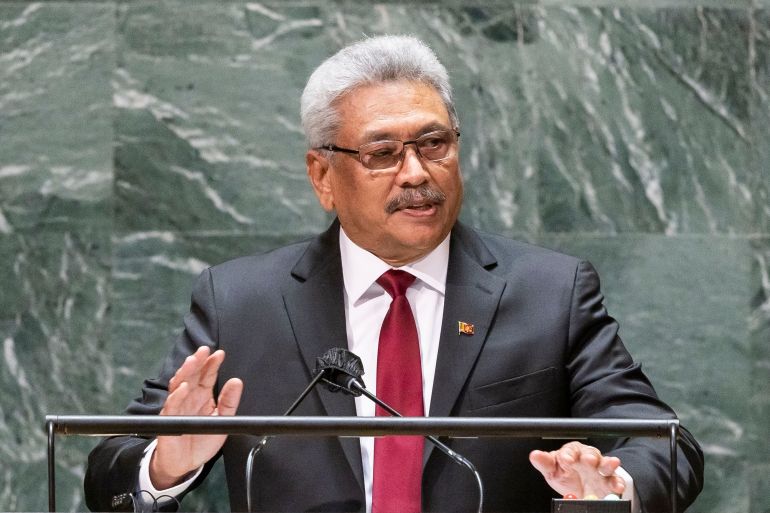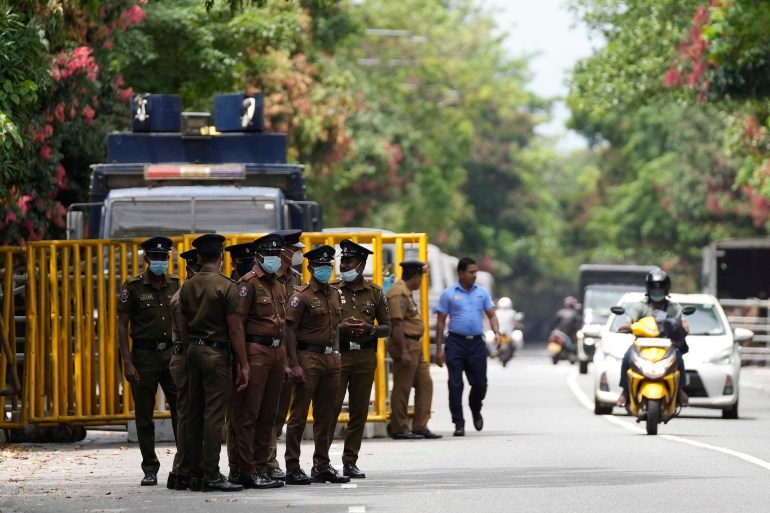No-confidence motion against Sri Lanka leader fails in parliament
Ruling party defeats move to urgently debate the motion censuring President Gotabaya Rajapaksa for the nation’s worst economic crisis.

A move by Sri Lanka’s opposition parties to force a no-confidence motion against President Gotabaya Rajapaksa in parliament has been blocked by the ruling party, an official said.
M A Sumanthiran, a legislator from the opposition Tamil National Alliance, on Tuesday proposed that parliament bypass procedure and take up the motion against Rajapaksa urgently.
Keep reading
list of 4 itemsSri Lanka mulls privatizing national airline amid crisis
Crisis-hit Sri Lanka down to its last day of petrol, warns new PM
Sri Lanka protests to continue as new PM struggles to form gov’t
But the ruling party defeated the motion with a 119-68 vote.
However, the motion can be taken up for debate later as a normal proposal, Minister Dinesh Gunawardena said.

The opposition move was prompted by growing dissent against the president due to the current economic crisis – the worst the island nation has faced since independence from the British in 1948 – which has resulted in fuel, food and medicine shortages.
The parliamentary motion accused Rajapaksa of being responsible for the economic crisis by introducing untimely tax cuts and prohibiting the use of chemical fertilisers, which resulted in crop failures.
It also said the president mismanaged the COVID-19 pandemic, using it for militarisation, promotion of non-scientific solutions and making unfavourable deals on vaccines.
“The objective of getting the motion passed on an urgent basis was to show that the president no longer enjoys the confidence of the parliament,” opposition member Mujibar Rahuman said.
It is unclear when the motion will be taken up again. Any passage of a no-confidence motion against the president would be non-binding but would dent Rajapaksa’s popularity.
Protests have been continuing for more than a month against Rajapaksa and his government as long queues for fuel and gas add to anger against the powerful clan.
The president’s elder brother, Mahinda Rajapaksa, quit as prime minister on May 9 after a wave of violence triggered by an attack on anti-government protesters by ruling party supporters.
Opposition member Ranil Wickremesinghe was named the new prime minister. He has vowed to resolve the shortages of fuel and gas
with the help of donor countries and agencies.
On Monday evening, Wickremesinghe offered a sombre assessment of the country’s dire situation. He said that about $75bn is needed urgently to help provide the nation with essential items, but the country’s treasury is struggling to find even $1bn.
“At the moment, we only have petrol stocks for a single day,” he said in a televised speech. “The next couple of months will be the most difficult ones of our lives.”